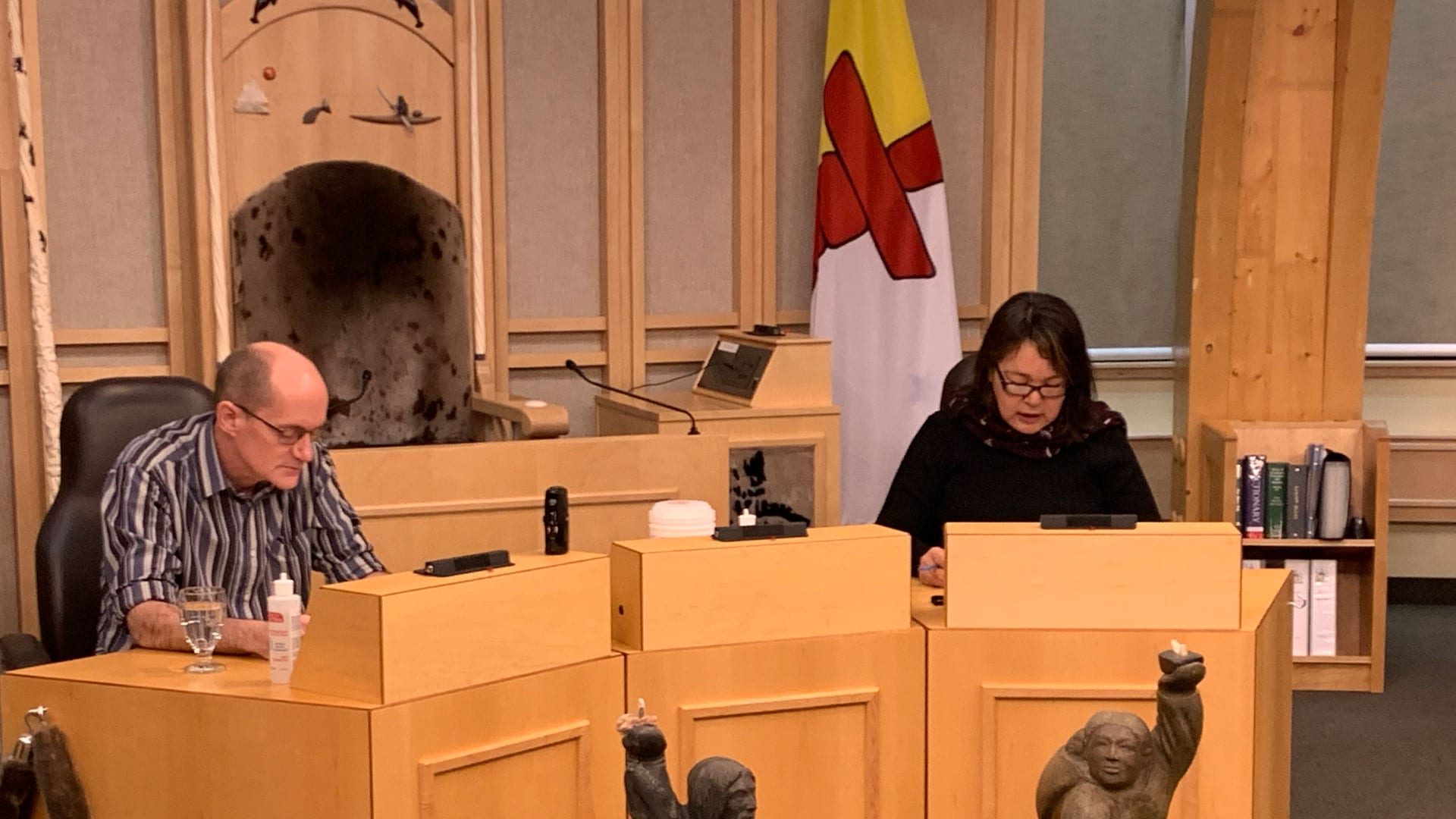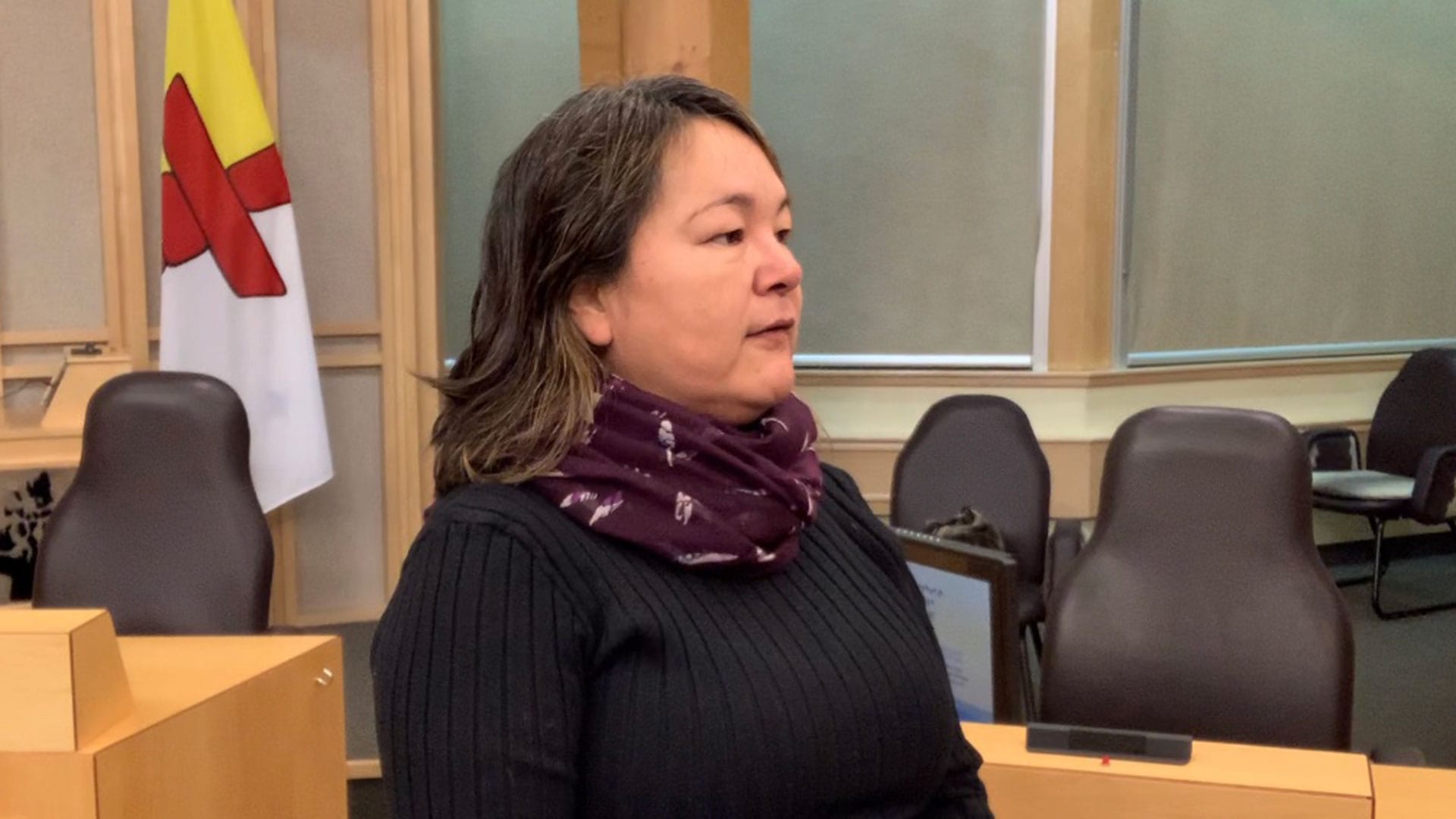A reporter asks Nunavut’s chief public health officer Dr. Michael Patterson a question in English. Patterson starts to respond in English.
Loudly, the Inuk woman next to him shouts out, “Wait!”
That woman is Ooleepika Ikkidluak, and Patterson forgot to wait for Inuktitut interpretation. Patterson smiles to himself, his face says it all: I did it again and she got me.
Ikkidluak has been an Inuktitut interpreter for 30 years. When the COVID-19 pandemic hit Canada in March, the government of Nunavut began doing briefings for reporters a few times a week, which are carried throughout the territory on the legislative assembly television channel. They called on her to be the Inuktitut voice of the pandemic.
That’s important. Seventy-six per cent of Nunavummiut can carry on a conversation in Inuktitut. For many of them, it is their first language. For some, it is their only language. When you’re trying to get out information in a pandemic, being understood is vital.
Premier Joe Savikataaq sings her praises.
“She has been vital, because we have a lot of unilingual Inuit in Nunavut, and she’s a very good interpreter,” he said. “She interprets very well and gets the messaging out that, if you have a unilingual person giving the message out, she has to be there to give the Inuit, not just Inuit language but Inuit perspective.”
That perspective is important too. Something that sounds easy to an English ear – like “plank the curve” – isn’t easy to get into Inuktitut.

The premier is bilingual and speaks his own Inuktitut. He knows that jargon can be hard to get across. “Sometimes, there’s not words, an Inuktitut word for a certain English word. She has to literally make it or explain it,” said Savikataaq, in English.
For Ikkidluak, the biggest adjustment is becoming such a public figure. She is on TV many times a week, giving Inuit information in their own language. Interpreters are usually behind the scenes. Now she is well known in every one of Nunavut’s 25 communities.
“People assume that I know everything about COVID-19, I get asked on the streets,” explained Ikkidluak. “It’s been an adjustment. I was nervous, but it’s coming naturally to me now.”
Often, Patterson fields a question that takes time to answer. He’s been learning over time to take pauses, so Ikkidluak can keep up.
“So it’s been a bit of a learning curve, and, yeah, there have been times, more so earlier on, where I’d get a complicated question, and it really needs a five minute answer, but picking points to stop and let her interpret, so she doesn’t get lost,” explained the doctor.
“Where it’s not recorded and not written down, I need to chunk it up into pieces that she can remember and interpret accurately, and then carry on from there. That’s hard. And there’s no school for that. That’s been a figuring it out as we go kind of thing,” added the doctor.
Read More:
Tallying the cost: Nunavut has, and will, pay a price for its COVID-19 response
After months preparing, Rankin Inlet gets its first cases of COVID-19
So Ikkidluak will interrupt Patterson if he doesn’t give time for her to keep up. Same goes for cabinet ministers. Same goes double for journalists, a run on question will get shut down in a hurry. Out of all three, she says the reporters are the worst for it.
“They go all over the place sometimes,” says Ikkidluak with a smile. “I’ve had to keep them in line to get straight to the question.”
George Hickes was Health minister until just a few weeks ago, and has been taking questions during the pandemic. He doesn’t speak Inuktitut, so he has a special appreciation for her interpretation.
“Oolie’s interpretation skills are second to none,” gushed Hickes. “Just to get the right technical terms, overlapping dialectical differences, to making sure that the message is getting out there.”

The briefings go out to every Nunavut community. Rankin Inlet Mayor Harry Towtongie is bilingual, but Inuktitut is his first and best language. For him, hearing both helps get it straight in his head.
“When Ooleepika interprets in Inuktitut – for me anyway – I get it. I would have missed a lot if I had just listened to the English version,” says Towtongie. “She’s been amazing, finding new words for COVID and different things you do to avoid COVID.
As Nunavut’s COVID-19 case count begins to climb, so do the importance of these briefings. There is a reason you see every Canadian jurisdiction doing briefings like this.
The World Health Organization recommends them, because a well-informed public is more likely to follow health instructions.
For Inuktitut speaking Nunavummiut, Ikkidluak is the difference between being informed and safe, or being at risk.










